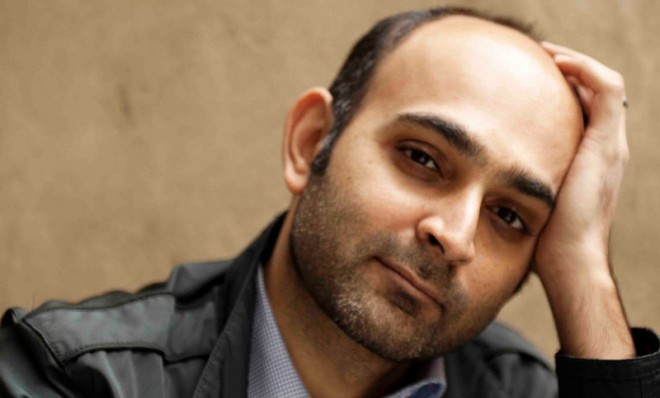Mohsin Hamid's 6 favorite books
The author of The Reluctant Fundamentalist loves E.B. White, Frank Herbert, Albert Camus, and more

A free daily email with the biggest news stories of the day – and the best features from TheWeek.com
You are now subscribed
Your newsletter sign-up was successful
Charlotte's Web by E.B. White (HarperCollins, $8). White's great children's book, which tackles the theme of the temporariness of life, showed me what literature is capable of. Beautiful, joyous, funny, and heartbreaking, it deals with the eternal cycle of people (well, mostly farm animals) passing from birth to death, and does so with wonder rather than with fear.
Dune by Frank Herbert (Ace, $10). This 1965 space saga set on a desert planet is a racy read and one of the best-selling sci-fi novels of all time. But for me it was the Middle Eastern, indeed quasi-Muslim, inspirations that Herbert layered into his book that introduced me to the idea of literary hybridity. It's sadly hard to imagine, post-9/11, this novel being written today.
The Crow Eaters by Bapsi Sidhwa (Milkweed, $16). I had not seen my native city of Lahore portrayed like this in fiction before. When I read this 1978 novel, the material of my everyday surroundings was transformed into literature. A humorous, tender account of a Parsi family going about their lives.
The Week
Escape your echo chamber. Get the facts behind the news, plus analysis from multiple perspectives.

Sign up for The Week's Free Newsletters
From our morning news briefing to a weekly Good News Newsletter, get the best of The Week delivered directly to your inbox.
From our morning news briefing to a weekly Good News Newsletter, get the best of The Week delivered directly to your inbox.
The Fall by Albert Camus (Vintage, $14). You enter a bar in Amsterdam. A man begins to speak to you, his strange, seductive confession suggesting that you are somehow complicit. This 1956 novel is a masterpiece. It taught me that the relationship between reader and writer could be explored explicitly on the page. I've practiced my craft differently ever since.
Pereira Maintains by Antonio Tabucchi (Canongate U.K., $14). At once a thrilling mystery, a literary inquiry, and a meditation on politics and fascism, this novel about an overweight journalist in 1930s Portugal—then under the rule of dictator António de Oliveira Salazar—amazed me with its compression and use of the testimonial form. It's close to perfection.
The Buddha in the Attic by Julie Otsuka (Anchor, $14). I read this award-winning 2011 book only last month, but it's made a profound impression. A devastating tale, told in the plural "we" by a generation of Japanese women who immigrate to California, it reminded me that novels can still be novel.
Mohsin Hamid's acclaimed new novel, How to Get Filthy Rich in Rising Asia, charts the rise of a young man in today's Pakistan.
A free daily email with the biggest news stories of the day – and the best features from TheWeek.com